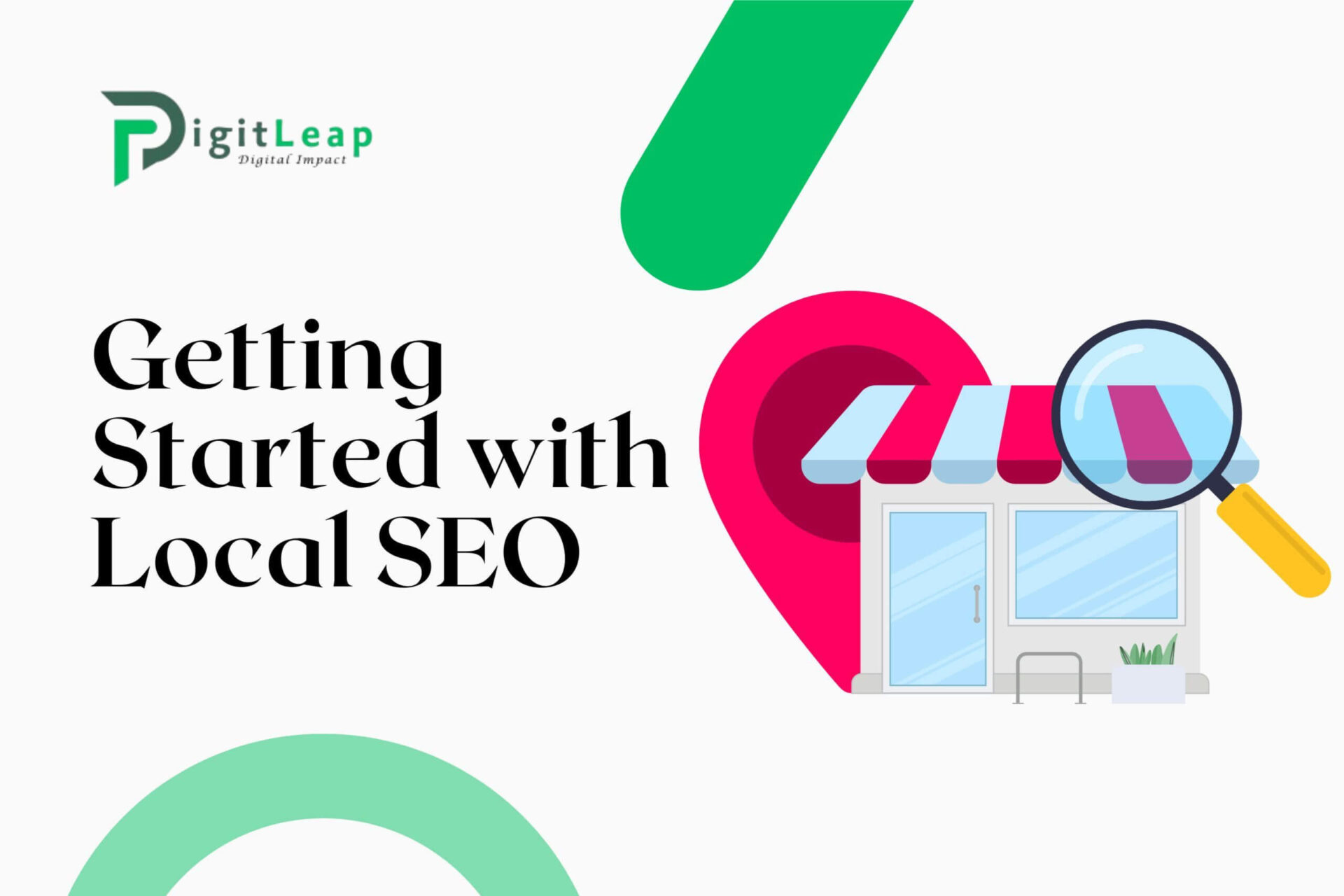Getting Started with Local SEO
For businesses that serve a specific location or region, local SEO is essential. Local SEO, or local search engine optimization, helps your business appear in search results when people nearby search for services or products you offer. From optimizing your website to managing your online reputation, there are many ways to make sure your business stands out to local customers. Here’s a guide to getting started with local SEO and positioning your business to capture nearby searchers effectively.
1. Optimize Your Google My Business Profile
One of the first and most important steps in local SEO is setting up and optimizing your Google My Business (GMB) profile. This free tool from Google lets you control how your business appears in local searches and Google Maps.
- Claim Your Listing: Search for your business on Google and claim it if you haven’t already. This step is essential to verify that you’re the owner and can update your business information.
- Complete All Fields: Provide accurate and detailed information about your business, including address, phone number, website, and operating hours.
- Add High-Quality Photos: Pictures of your storefront, products, and team help make your profile more inviting and trustworthy.
- Encourage Reviews: Positive reviews improve your credibility and can boost your local ranking.
A well-maintained Google My Business profile not only improves your search visibility but also makes it easy for potential customers to find essential information about your business.
2. Use Local Keywords on Your Website
Local keywords help Google understand that your business is relevant to users searching in your area. Incorporating location-based keywords on your website helps you appear for searches like “plumber near me” or “best bakery in [City Name].”
- Identify Local Keywords: Use tools like Google’s Keyword Planner, Moz, or Ahrefs to find keywords that include your service plus your city or neighborhood.
- Add Keywords Naturally: Place these keywords on relevant pages, such as in page titles, meta descriptions, headings, and within the content.
- Optimize Your Homepage and Contact Page: Make sure your homepage clearly states your location and services, and ensure your contact page includes an address, phone number, and Google Map if possible.
By using local keywords effectively, you make it easier for search engines to connect your business with nearby searchers looking for what you offer.
3. Ensure Your NAP Information is Consistent
NAP stands for Name, Address, and Phone number. Consistency in your NAP details across all online platforms is crucial for local SEO. Search engines rely on this information to determine your business’s legitimacy and relevance in local searches.
- Update Your Website: Make sure your NAP information on your website is accurate and matches what you’ve provided on your Google My Business profile.
- List on Local Directories: Include your business in reputable local directories (like Yelp, Yellow Pages, and TripAdvisor) to improve your online presence.
- Maintain Uniformity Across Listings: Check for old or outdated information that might be scattered across directories and update them to ensure consistency.
Consistent NAP information builds trust with both search engines and customers, making it easier for people to find and connect with your business.
4. Get Customer Reviews and Respond to Them
Customer reviews are powerful for local SEO because they build credibility and improve your ranking in local search results. Google, in particular, prioritizes businesses with positive reviews, making them more visible in searches.
- Encourage Reviews: Ask satisfied customers to leave reviews on Google, Yelp, or other relevant platforms. Consider sending a follow-up email or a gentle reminder after a purchase.
- Respond to All Reviews: Show that you care by responding to both positive and negative reviews. A simple thank you for positive reviews or an apology and solution for negative ones can go a long way.
- Highlight Reviews on Your Website: Displaying positive reviews on your website can improve trust and reassure potential customers that others had a great experience with your business.
By actively managing and encouraging reviews, you enhance your online reputation and increase the likelihood that people will choose your business over competitors.
5. Create Locally Relevant Content
One way to boost your local SEO efforts is by creating content that speaks directly to your community. Blog posts, guides, and event announcements that are specific to your location show both search engines and users that you’re active in the community.
- Write About Local Events: Cover local happenings, festivals, or events related to your industry. For example, a restaurant might write about seasonal food festivals or local dining trends.
- Offer Local Tips or Guides: Create “Best of” lists, like “Top 10 Things to Do in [City]” or “Guide to the Best Hiking Spots Near [Location].”
- Collaborate with Local Influencers: Partner with local bloggers or influencers to expand your reach and create content that resonates with nearby audiences.
By tailoring your content to your local audience, you’ll attract more relevant visitors to your website and increase your visibility in local search results.
6. Make Sure Your Website is Mobile-Friendly
A large number of local searches are done on mobile devices, so having a mobile-friendly website is essential for local SEO. Mobile users are often looking for quick information, so make sure your site is optimized for their experience.
- Fast Loading Speed: Ensure your website loads quickly on mobile devices, as slow sites may lead to higher bounce rates.
- Clear Contact Information: Make it easy for mobile users to find your phone number, address, and hours of operation right from the homepage.
- Responsive Design: Use a responsive website design that adapts seamlessly to different screen sizes and devices.
By creating a mobile-friendly website, you improve the experience for mobile users and increase your chances of converting those visitors into customers.
7. Use Social Media to Boost Local Presence
Social media can play an important role in local SEO by increasing brand awareness and connecting you with the community. Engaging with followers and sharing locally relevant content on platforms like Facebook, Instagram, and Twitter can help build a local following.
- Geo-Tag Posts: When sharing posts, tag your location to make it clear where you’re based and to increase visibility among local users.
- Promote Local Events and Collaborations: Share posts about community events you’re participating in or collaborations with other local businesses.
- Encourage Customer Check-Ins: Run promotions or incentives encouraging customers to check in at your location on social media, which increases your reach and visibility.
Social media engagement creates a local connection that’s valuable for both your brand and SEO. Plus, it keeps your business top of mind for those in your community.
8. Track Your Local SEO Performance
Once you’ve put your local SEO strategies in place, it’s important to track your progress. This allows you to see what’s working and make adjustments where needed to improve your local ranking further.
- Google My Business Insights: This feature in GMB shows you how people find your business, including searches, views, and actions taken on your profile.
- Google Analytics: Track where your website visitors come from, what pages they visit, and how long they stay.
- Keyword Rankings: Use tools like Moz or SEMrush to monitor how well your local keywords are ranking in search results.
Tracking performance gives you a clear idea of what strategies are most effective and where to focus your future efforts.
Conclusion
Local SEO is all about making it easy for nearby customers to find and choose your business. From optimizing your Google My Business profile to creating locally relevant content, every step you take brings you closer to stronger visibility and a more engaged local audience. While it takes time to build, a solid local SEO strategy creates lasting benefits that help you stand out in local searches and stay top of mind for nearby customers.
At Digit Leap, we understand the nuances of local SEO and the importance of connecting with your community. Ready to strengthen your local presence and attract more customers in your area? Let Digit Leap guide you through each step of local SEO to position your business for success.





